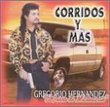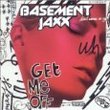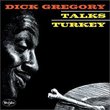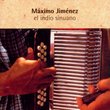| All Artists: Deparis, Lawson, Haggart Title: Over & over Again Live at the Roosevelt Members Wishing: 0 Total Copies: 0 Label: Collectables Records Original Release Date: 1/1/1969 Re-Release Date: 9/26/2000 Album Type: Live Genre: Jazz Style: Dixieland Number of Discs: 2 SwapaCD Credits: 2 UPC: 090431662229 |
Search - Deparis, Lawson, Haggart :: Over & over Again Live at the Roosevelt
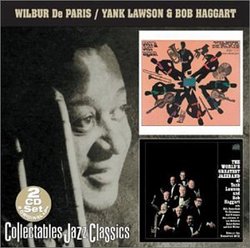 | Deparis, Lawson, Haggart Over & over Again Live at the Roosevelt Genre: Jazz
|
Larger Image |
CD DetailsSimilar CDs
|
CD ReviewsTwo great Jazz albums in one package T. A. Shepherd | Palmdale, Ca. 93550 | 10/13/2008 (5 out of 5 stars) "Well, there are two albums here, aren't there? The first one being Wilbur DeParis' classic "Over & Over Again"--I've long enjoyed Trad Jazz, probably because during the mid-to-late sixties, current pop artists incorporated it in their music. The music was used often in movies and much of the classic Jazz musicians were enjoying new-found popularity with the young people. In the folk revival of the early sixties, in particular, British bands such as Kenny Ball, Acker Bilk and Chris Barber were playing the circuit and that may be where I first honed in on it. Upon being discharged from the Army in 1972, I began returning to Folk music and also, Trad (as I like to call it). I found out about many musicians who were still living at the time were playing the music as if it had always been fashionable to do so. In addition, there were many new bands springing up all over the world (most notably The Black Eagle Jazz Band from Boston and Max Collie from England) playing with such fervor and excitement that I had almost completely forgot about Rock!! (But then, Rock, in the early 70's was not much to talk about.) That said, Wilbur's band of musicians recorded this album from 1958 to 1960, as far as the liner notes reveal. The album was not, however released until 1968, as the "op-art" album cover shows. The music here, is more relaxed than in most Trad recordings, but still has the feeling of early Jazz. As the 1958 recording of "Over & Over Again" shows, the solos as well as ensemble, the rhythm is unstoppable. By contrast, the 1960 recording of the same tune is pure modern. There are a few hints of deep seated tradition here in the tunes "Ja-Da" and "Royal Garden Blues". In the latter, the tempo is turned to high steam as the band kicks into full swing with Wilbur tailgating with all he's got. "Wabash Blues" is done in very much the same fashion, in multiple tempos. From there, the sounds go into exotica, as in "Watching Dreams Go By". Here, Wilbert Kirk switches from drums, to light percussion and harmonica!! "Would You Care" starts out in a fifties' doo-wop style, then relaxes into a modern Jazz groove. Due to the diverse arrangements of these tunes, it may be easy to see why these sessions were held back until this late of date. Musicians include Wilbur's brother Sidney, Doc Cheatham, Garvin Bushell, Sonny White, John Smith (Fats Waller), Hayes Alvis, Wilbert Kirk, Omer Simeon, and Rudy Rutherford.
Which brings us to the other album--Live At the Roosevelt Grill by The World's Greatest Jazz Band. Led by Yank Lawson and Bob Haggart, the WGJB is a band comprised of top notch modern Jazz musicians such as Vic Dickinson, Lou McGarrity, Bud Freeman, Billy Butterfield, Bob Wilbur, Ralph Sutton and Gus Johnson. Only on some of the tracks here does the band venture into Trad, however. "Come Back Sweet Papa" is a throwback to the Louis Armstrong's Hot Five era. In fact, it was written by Louis Russell and Paul Barbarin. This one swings heavily with some of Dickinson's finest roars you'll ever hear. Of course, there's the ever-beautiful tune that Vic wrote, "Constantly". His muted horn solo speaks for itself. Ralph Sutton is featured in "Five Points Blues" which is played at medium tempo throughout., with the usual New Orleans rhythms thrown in for good measure. "Jazz Me Blues" is handled in a more modern fashion here, but that certainly doesn't take away from the band's ability to swing as drummer Gus Johnson attests. "My Honey's Lovin' Arms" is an old favorite, but seldom done by revival bands. I only remember The Firehouse Five + 2 doing it besides this band. Sutton is featured once again in the great old tune, "New Orleans". Vic Dickinson's trombone can be heard dragging throughout the ensemble played at the beginning. This very well may be the definitive version here. Once again, "Royal Garden Blues" appears in great form. This one and "That's A-Plenty" have been Trad staples since day one, and they never get old, especially with this band. On "The D-Minor Thing", the band once again goes modern and do they ever swing! Bob Wilbur and Bud Freeman are featured here on their respected instruments. The lights go down on "Under the Moonlight Starlight Blue". There something for everybody here, but I like it all. There is nothing this band can't play. I remember purchasing the album back in the early 70's--it was recorded in 1970--and listening to the CD now, it just reminds me of what a great album it is. So here it is--two great Jazz albums in one package by two completely different bands!" |

 Track Listings (13) - Disc #1
Track Listings (13) - Disc #1
